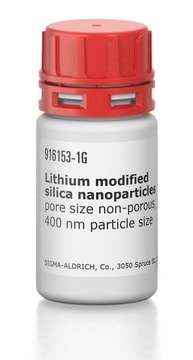CS1000
Superoxide Anion Assay Kit
sufficient for 100 assays (96 well plates)
Synonym(s):
Superoxide Detection Kit
Sign Into View Organizational & Contract Pricing
All Photos(2)
About This Item
UNSPSC Code:
12161503
NACRES:
NA.84
Recommended Products
Application
The Superoxide Anion assay kit provides a useful qualitative cell-based assay for the measurement of O2− anion status in cells. The kit can be used to test changes in superoxide anion levels following oxidative stress directly in whole cells. In addition, the kit can be also used for the detection of superoxide dismutase (SOD) activity. This activity was tested on erythrocytes, leucocytes, and plasma.
Biochem/physiol Actions
The superoxide anion (O2-) is a short-lived radical generated by the addition of an electron to oxygen. It is formed in response to environmental factors such as UV light, cigarette smoke, environmental pollutants, and γ-radiation, or by oxidases like xanthine oxidase or NADPH oxidase. Once formed, O2- attacks cellular components causing damage to lipids, proteins, and DNA. This can initiate numerous diseases, including cancer, atherosclerosis, rheumatoid arthritis, diabetes, liver damage, and central nervous system disorders.
Analysis Note
The kit method is based on the oxidation of luminol by superoxide anions resulting in the formation of chemiluminescence light. This method utilizes a specific, non-toxic enhancer that amplifies the chemiluminescent signal.
Kit Components Only
Product No.
Description
- Assay Buffer 25 mL
- Assay Medium 20 mL
- Enhancer Solution, 40 mM 500 μL
- Luminol Solution 500 μL
- Xanthine Solution 500 μL
- Xanthine Oxidase .5 U
- Superoxide Dismutase from bovine liver, 4 units/μL 400 U
Storage Class Code
10 - Combustible liquids
Certificates of Analysis (COA)
Search for Certificates of Analysis (COA) by entering the products Lot/Batch Number. Lot and Batch Numbers can be found on a product’s label following the words ‘Lot’ or ‘Batch’.
Already Own This Product?
Find documentation for the products that you have recently purchased in the Document Library.
Customers Also Viewed
Muthusamy V Shanmuganathan et al.
Microbes and infection, 16(2), 134-141 (2013-10-29)
Macrophages serve as permissive niches for Escherichia coli (E. coli) K1 to attain high grade bacteremia in the pathogenesis of meningitis in neonates. Although pterin levels are a diagnostic marker for immune activation, the role of macrophages in pterin production
Javier Milara et al.
Scientific reports, 12(1), 5132-5132 (2022-03-26)
Non-T2 severe asthma and chronic obstructive pulmonary disease (COPD) are airway chronic inflammatory disorders with a poor response to corticosteroids. LAS194046, a novel pan-Janus kinase (JAK) inhibitor, shows inhibitory effects on T2 allergic lung inflammation in rats. In this work
Wen-Bin Zhang et al.
Oxidative medicine and cellular longevity, 2021, 6610543-6610543 (2021-02-06)
Doxorubicin- (DOX-) related cardiac injury impairs the life quality of patients with cancer. This largely limited the clinical use of DOX. It is of great significance to find a novel strategy to reduce DOX-related cardiac injury. Oroxylin A (OA) has
Erythropoietin activates nitric oxide synthase in murine erythrocytes
Mihov,D et al.
The American Journal of Physiology, 279(2), C378-C388 (2009)
Dawei Jiang et al.
Nature biomedical engineering, 2(11), 865-877 (2018-12-07)
Patients with acute kidney injury (AKI) frequently require kidney transplantation and supportive therapies, such as rehydration and dialysis. Here, we show that radiolabelled DNA origami nanostructures (DONs) with rectangular, triangular and tubular shapes accumulate preferentially in the kidneys of healthy
Our team of scientists has experience in all areas of research including Life Science, Material Science, Chemical Synthesis, Chromatography, Analytical and many others.
Contact Technical Service




